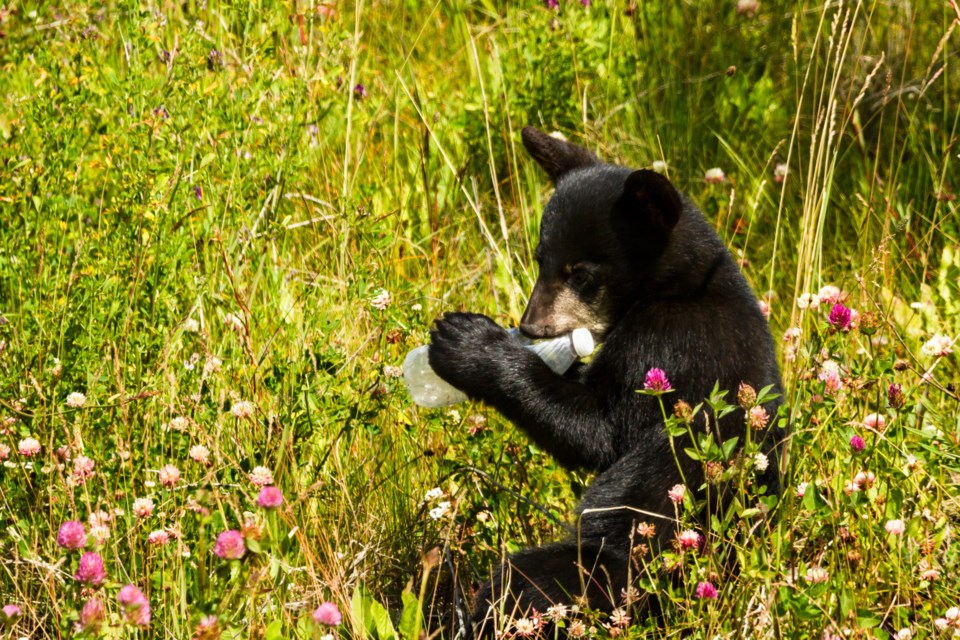As snow continues to melt across the Sea to Sky (albeit slowly), wildlife season in the corridor is ramping up.
Ahead of the warmer weather's arrival, the Squamish Lillooet Regional District has partnered with the WildSafeBC program to promote wildlife awareness in its communities for a third consecutive year, as part of a broader effort to minimize human-wildlife conflict in the region.
From now until November, that public education will come in the form of bear spray workshops, safety presentations, social media and door-to-door outreach, display booths at local events, garbage tagging and WildSafeBC Ranger presentations for children, for example. New this year, the program has also secured funds to pilot an electric fencing cost-share program to help keep wildlife away from farmers' fields, fruit trees and other natural attractants.
“We are pleased to be able to bring back the WildSafe program,” said SLRD board chair Jen Ford in a release. “Last year, with the pandemic, we had to scale back a lot of the in-person engagement. So much of this work is about relationships, and that takes time. We are gaining some great momentum throughout the region, in our collective efforts to reduce conflicts between people and wildlife, and it’s great to be back at it, and to be able to do more of this work in person.”
WildSafeBC SLRD coordinator Devin Pawluk will return to the role this season to carry out that outreach and deliver the initiative's programming.
As is the case in other B.C. communities, attractants like garbage, compost, and recycling are the leading cause of human-bear conflicts in the SLRD, Pawluk noted in the release
“Bears create food maps in their minds and will return to areas where they have found food before. As bears emerge from their winter dens, they are hungry and seeking food. It is important that bears feed on natural springtime vegetation and not our food waste, which is an easy high calorie food reward for them,” Pawluk added.
To prevent wildlife—particularly bears—from accessing these kinds of residential waste, SLRD residents are reminded to store garbage and recycling in wildlife resistant containers or enclosures, and only place containers at the curb on the morning of collection and during collection hours.
The SLRD also reminds residents equipped with bear-resistant carts that the contraptions are only bear-resistant, not bear-proof, and should be stored indoors whenever possible. "If an indoor location is not available, then carts should be secured to a solid post or other object with chain to prevent them from being dragged away," the SLRD advised in the release. "Always keep them closed and secure using both clips."
Locals can keep up to date on WildSafeBC and SLRD wildlife activity news through the program's social media channels this season, and report wildlife conflict to the BC Conservation Officer Service anytime at 1-877-952-7277.
Residents are also encouraged to report bear, cougar, coyote, or wolf sightings in any urban area throughout the regional district. Reports are uploaded daily to the WildSafeBC Wildlife Alert Reporting Program, which helps the public track sightings in their neighbourhood and be aware of new wildlife reports.



